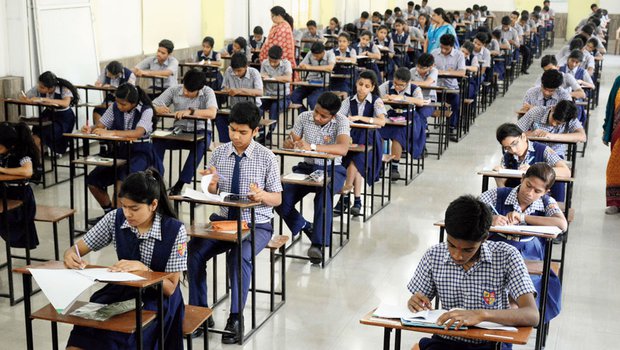Those thinking that the Modi government ended its ideological reforms spree with the abrogation of Article 370, outlawing Instant Triple Talaq and the Citizenship Amendment Act are in for a huge surprise. The Modi government is looking at yet another big-bang reform, viz. revising NCERT curriculum framework after a lag of 15 years.
The interim report on the new National Curriculum Framework (NCF) will be submitted by December. And it is being expected that the new Curriculum Framework will become operative by the next academic year. The last time this exercise happened in 2005, when the UPA government distorted much of the reforms carried out by the Vajpayee government in the name of ‘de-saffronisation’.
The Human Resource Development (HRD) Ministry said, “The new NCF for School Education has been initiated. NCERT will be expected to make changes in the textbooks in accordance with the new NCF. Subject experts will initiate this process for school education, and give an interim report by December 2020. The new NCF is expected to be ready by March 2021.”
The NCERT has been asked to ensure that while redesigning books it must be ensured that nothing but the core content is placed in them.
The Union Ministry said, “Also, the cognitive load of the textbooks is too high. Additional areas, such as creative thinking, life skills, Indian ethos, art, and integration, need to be integrated. NCERT will also start working on the layout and design of the new textbooks well in advance, however, the new textbooks shall be written based on the new NCF.”
It added, “Under Atma Nirbhar Bharat, for PM E-Vidya, NCERT is also expected to prepare content for Class 1 – 12 for SWAYAM PRABHA channels (1 class 1 channel) and start the channels by August this year.”
The NCF has been revised four times to date- in 1975, 1988, 2000, and 2005. In the year 2000, the Vajpayee government had made far-reaching changes to Indianise the school education curriculum.
The then HRD Minister, Murli Manohar Joshi had introduced ideas that are abhorred by Marxist historians and the pseudo-seculars.
This included highlighting India’s contribution to world wisdom- ensuring that students read about Indian pioneers like Aryabhatta, teaching yoga and yogic practices, placing greater emphasis on India’s cultural space and heritage, and finally introducing Vedic mathematics, astronomy and palmistry.
The entire left-liberal cabal was up in arms, and even dragged the matter to the apex court. The Supreme Court however held that the Vajpayee government was not “saffronising” education.
However the lobby continued outraging and when the UPA government came into power the National Curriculum was revised again- merely five years after the National Curriculum Framework for Secondary Education(NCFSE) was introduced in 2000.
Arjun Singh, who was then the HRD Minister in the UPA government presided the exercise in 2005. The curriculum was revised all over again and all the changes made by the NCFSE in 2000 were undone. The avowed purpose of the exercise was ‘de-saffronisation’.
India’s children should be given an opportunity to read about their cultural and national roots. Political establishment has no right to deracinate the present and upcoming generations. India’s education must be Indianised and if the opposition considers it ‘saffronisation’ then so be it.
The 2020 NCF is a golden opportunity to undo most of the damage done in the year 2005. The Vajpayee government had taken a huge step in the right direction, and now the Modi government must restore the process that late Prime Minister Atal Bihari Vajpayee had started.
